News from France, Scotland and Great Britain
Tuesday's World Events — Posted on June 3, 2014
FRANCE – D-day 70th anniversary at Normandy
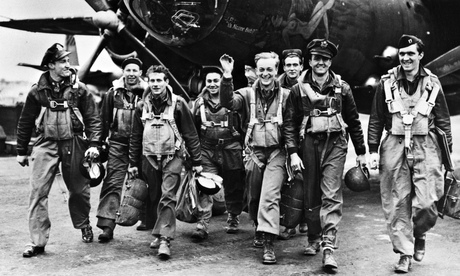
June 7, 1944: bomber crews of the US Ninth Airforce return from a bombing mission supporting the D-day landings in Normandy. (Photo: Fred Ramage/Getty Images)
From across the Channel, the Atlantic, the other side of the globe, they are arriving, headed for the Normandy beaches where, 70 years ago, war exacted the ultimate price from their comrades.
Now a dwindling band of brothers, D-day veterans from Britain, America, Canada, Australia, and New Zealand, in their late 80s and 90s, will join 17 heads of state for an official commemoration of the [largest] seaborne invasion in military history.
While celebratory fireworks illuminate Utah, Omaha, Gold, Juno and Sword beaches, this week’s 70th anniversary of the second world war events allow also for solemn reflection.
Up to 600 British veterans and 350 from the US are expected to join commemorations, some of which will be be attended by world leaders including US president Barack Obama, German chancellor Angela Merkel, Russian president Vladimir Putin, and British head of state the Queen.
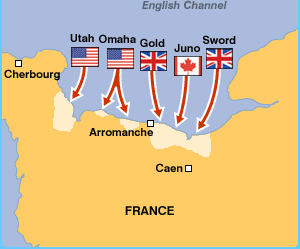 Friday’s international ceremony is at Sword, the most eastern of the five beaches, and assaulted by the 3rd British Infantry Division with some 29,000 men landing there. Its location serves as a fitting tribute not just to the 156,000 men who made up the Allied invasion force, but also the 177 Free France commandos who took part in ground operations on D-day alongside the British.
Friday’s international ceremony is at Sword, the most eastern of the five beaches, and assaulted by the 3rd British Infantry Division with some 29,000 men landing there. Its location serves as a fitting tribute not just to the 156,000 men who made up the Allied invasion force, but also the 177 Free France commandos who took part in ground operations on D-day alongside the British.
The sacrifices made by the French, up to 20,000 civilians killed mainly as a result of allied bombing, are to be recognised with a national memorial service at the Caen memorial on Friday morning.
Obama will join French president François Hollande at a service later in the morning at the American Cemetery at Colleville-sur-Mere. US forces bore the brunt of allied casualties on that day. Of the estimated 4,500 who died, some 2,500 were US personnel. Casualty figures on cliff-fringed “Bloody” Omaha, where difficult terrain allowed German machine gun fire to tear into troops, were higher than on any other beach. Bodies piled up in the ensuing carnage. It has been said of Omaha there were two kinds of people staying on the beach – “The dead and those who are about to die.” A huge dawn gathering on Omaha beach is planned. …
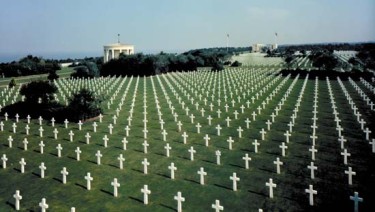
The Normandy American Cemetery and Memorial honouring U.S. soldiers who died on European soil in World War II, Colleville-sur-Mer, France.
Along the 50-mile Normandy coastline, hundreds of other events will take place over June 5th and 6th. There are parades, concerts, military vehicle parades and vigils, including one overnight reading of the names of 45,000 Canadian soldiers killed during the war.
Parachute drops include a commemorative descent by 300 UK and US soldiers at Ranville, the historic drop zone and the first French village to be liberated.
In Britain the National Memorial Arboretum in Staffordshire, the UK’s center for remembrance will be holding a day of commemoration including a service of remembrance in its chapel and a wreath-laying at the Normandy Veteran’s Memorial.
SCOTLAND – Scotland plans to mark 100th anniversary of WWI
EDINBURGH More than 8,000 people from all parts of Scotland will gather on August 10 to commemorate the centenary of the outbreak of World War I with a drumhead service at Edinburgh Castle, organizers said on Thursday.
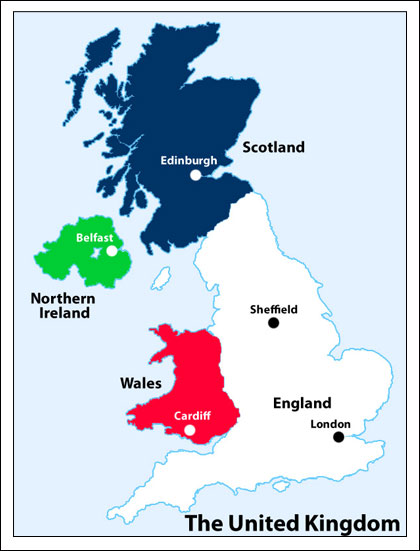 Members of the public from every local authority area in Scotland will be invited to form the congregation along with representatives of the military, veterans groups, charities and civic leaders for the multi-faith service on the castle esplanade to replicate those held on the front line 100 years ago where neatly piled drums were used in place of an altar, Scottish Cabinet Secretary for Culture and External Affairs Fiona Hyslop announced at a press briefing inside the Edinburgh Castle.
Members of the public from every local authority area in Scotland will be invited to form the congregation along with representatives of the military, veterans groups, charities and civic leaders for the multi-faith service on the castle esplanade to replicate those held on the front line 100 years ago where neatly piled drums were used in place of an altar, Scottish Cabinet Secretary for Culture and External Affairs Fiona Hyslop announced at a press briefing inside the Edinburgh Castle.
Following the service, military bands will parade down the Royal Mile and the congregation will be invited to follow in a procession to Holyrood Park, where they will find a replica Commonwealth war graves cemetery and there will be more than 100 headstones to represent the names recorded in the Rolls of Honor at the Scottish National War Memorial.
The Scottish commemorations program will remember eight events from World War I that had a significant impact on Scotland, including the start and end of the war, as well as major battles and domestic incidents, Hyslop noted.
“The First World War claimed the lives of more than 100,000 Scots and left many more injured or disabled, forcing families and communities across the country to come to terms with the devastating consequences.” she said.
Throughout the centenary period, people of all ages across Scotland will be encouraged to recognize the significant and broad impact World War I had on Scotland and its people, and to reflect thoughtfully on its lasting social and civic legacy, Hyslop added.
British Secretary of State for Scotland Alistair Carmichael said the event “will provide a chance to pause for reflection, an opportunity for people to learn more about the war and help ensure our country never forgets those who made the ultimate sacrifice, and the world will never be the same.”
Both Norman Drummond, Chair of the Scottish Commemorations Panel, and Donald Wilson, Lord Provost of Edinburgh, stressed the role of education of young people and the next generations, service sacrifice and reflection of “What do we learn from all this?” to ensure that “it will not happen again.”
On Aug. 4 this year, the 100th anniversary of the date Britain entered the First World War, there will be commemoration events in Glasgow, Scotland’s largest city, as part of the British commemorations program, including a Commonwealth-themed service and a Cenotaph service. [Note: A cenotaph is an “empty tomb” or a monument erected in honour of a person or group of people whose remains are elsewhere. It can also be the initial tomb for a person who has since been interred elsewhere. The Cenotaph is the monument in Whitehall, London, honoring the dead of both World Wars: designed by Sir Edwin Lutyens: erected in 1920]
World War I was a global war centered in Europe that began on July 28, 1914 and lasted until November 11, 1918.
GREAT BRITAIN – Britain to turn off the lights for First World War centenary
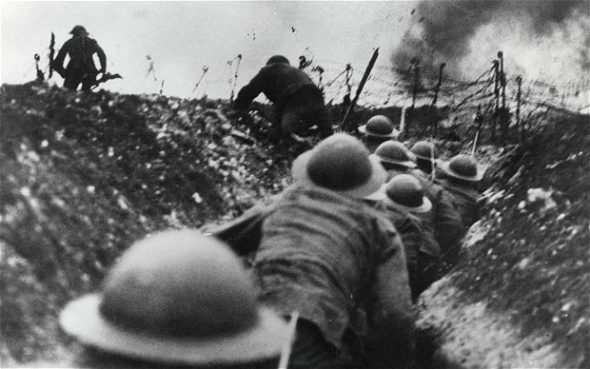 Every household in Britain will be asked to turn out the lights at 11pm on August 4 to mark the centenary of the First World War, under plans announced [in March] by Britain’s Culture Secretary Maria Miller.
Every household in Britain will be asked to turn out the lights at 11pm on August 4 to mark the centenary of the First World War, under plans announced [in March] by Britain’s Culture Secretary Maria Miller.
The nationwide event is designed to echo the words attributed to Sir Edward Grey, Foreign Secretary, on the eve of the conflict: “The lamps are going out all over Europe; we shall not see them lit again in our lifetime.”
The Government is backing the initiative, which forms part of a cultural program to commemorate the centenary. Organizers are hailing it as “one of the most dramatic UK-wide events ever organized” in which “people from all four nations will be invited to turn off their lights and to replace them with one single light to remember a day that changed the world forever.”
Germany declared war on France and invaded Belgium on August 3 1914. That evening, Sir Edward Grey gazed across St James’s Park from his window at the Foreign Office as the lamps were being lit on the Mall. He turned to a friend, John Spender, and made his now famous remark.
The switch-off, official titled Lights Out, is a centrepiece of the 14-18 Now program. Funded by £10 million of National Lottery money, it is the brainchild of Britain’s Department for Culture, Media and Sport. …
Events will take place over the next four years and will centre around three key moments: the declaration of war, the start of the Battle of the Somme and Armistice. …
The Lights Out event will take place at the same time a candlelit vigil of prayer, readings and music held in Westminster Abbey. During the event, candles will be extinguished one by one until a single flame is snuffed out at 11pm.
(The news briefs above are from wire reports and staff reports posted at London’s The Guardian on June 3, Shanghai Daily on May 15 and London’s Daily Telegraph on March 27.)
Questions
1. For each of the 3 countries, provide the following information:
a) capital:
b) location/the countries that share its borders:
c) the religious breakdown of the population:
d) the type of government:
e) the chief of state (and head of government if different) [If monarch or dictator, since what date has he/she ruled? - include name of heir apparent for monarch]:
f) the population:
[Find the answers at the CIA World FactBook website. For each country, answers can be found under the "Geography" "People" and "Government" headings. Go to worldatlas.com for maps and a list of continents.]
NOTE: “Answers” emails have ended for the school year and will resume September 2nd.
2. For FRANCE:
a) list the who, what, where and when of the news item
b) List the events noted in this article which are taking place to commemorate the 70th anniversary of the D-Day invasion in France this week.
c) CHALLENGE: Read the “Background” and visit the links under “Resources.” List at least 2 significant facts you learned about the D-Day invasion from these resources.
3. For SCOTLAND:
a) list the who, what, where and when of the news item
b) How did the Scottish government choose the eight events from WWI that will be commemorate on the 100th anniversary of the war?
c) What do organizers of the commemoration events hope people will get out of the events?
4. For GREAT BRITAIN:
a) list the who, what, where and when of the news item
b) What is the purpose of Britain’s 14-18 Now “Lights Out” event?
c) What three events will be marked during the next four years’ WWI commemorations?
Background
FRANCE
- Many of the British veterans will visit Bayeux, known as the British shrine, for a Royal British Legion service at midday on Friday at the cathedral followed by an service of remembrance at the war graves cemetery where 4,144 second world war soldiers from the [British] Commonwealth are buried.
- The Bayeux Memorial bears the names of 1,800 men from Commonwealth land forces who died during intense fighting during the advance into Normandy and have no known grave.
- The Prince of Wales will watch a short parade of veterans, joined by Australian prime minister Tony Abbott, who will be accompanied by seven Australian D-day veterans. Some 3,000 Australians fought in support of the D-day landings, with 18 killed.
- Shortly before sunset, the Normandy Veterans Association (NVA) will perform its final parade at Arromanches on Gold beach, where, on June 6, 1944, nearly 25,000 men from the British 50th division landed. Always emotional, the ceremony has added poignancy given the NVA is to disband in November, its numbers having dwindled from some 15,000 thirty years ago less than 1,000 today. For some, as they march past the Duke and Duchess of Cambridge, representing the Queen, it will be a last farewell to Gold.
- Elsewhere, Canadian prime minister Stephen Harper will pay tribute to the 21,000 Canadian troops who secured a heavily-defended Juno beach at a service nearby, accompanied by five veterans invited as his guests.
- Nine veterans have officially been invited to attend the commemorations from New Zealand. (from the Guardian article above)
SCOTLAND
The dates recommended by the Scottish Commemorations Panel that will be marked during the centenary of the First World War are as follows:
- August 2014: Outbreak of WWI. Among other commemorations, including a Commonwealth ceremony in Glasgow, a drum-head service will be held on the esplanade at Edinburgh Castle, replicating the church services staged on the front line that used neatly piled drums for impromptu altars.
- 25 April 2015: Gallipoli: The allied naval and military operation to force the Dardanelles and so secure entry to the Black Sea and to the then capital of Turkey, Istanbul. The 52nd Lowland Division, including many Scottish battalions, took part in the later stages of the campaign.
- 22 May 2015: The train crash at Quintinshill, near Gretna: the Leith-based 7th Battalion Royal Scots, Territorial Force were on their way to Liverpool for Gallipoli and lost 214 officers and men; 246 people, mainly soldiers, were injured.
- 25 September 2015: Battle of Loos. Part of the first Allied offensive in Artois and Champagne. Half of all casualties were Scottish and five VCs were awarded to Scots, including an award to piper Daniel Laidlaw, who braved poison gas and gunfire to play his company forward.
- 31 May 2016: Battle of Jutland. The only time that British and German dreadnought battleships came to blows. Both sides claimed victory - the Germans lost fewer ships and men but the British claimed victory as Germany never again seriously challenged British control of the North Sea during WWI.
- 9 April 2017: Battle of Arras. A concentration of 44 Scottish battalions and seven Scottish-named Canadian battalions attacked on the first day in the largest concentration of Scots to have fought together during the war. One-third of the 159,000 British Expeditionary Force casualties were Scottish.
- 11 November 2018: Armistice Day and celebration of peace.
- 1 January 1919: Loss of HMY Iolaire. The Iolaire was carrying many naval personnel returning home to Lewis from the Kyle of Lochalsh when she struck rocks half a mile from Stornoway with the loss of 204 of the 285 men aboard.
Why remember? In August 2014 the world will mark the hundredth anniversary of the outbreak of the First World War. Why should we remember? Why should we stop and think about those events that happened so long ago?
- The First World War was a turning point in world history.
- It claimed the lives of over 16 million people across the globe and had a huge impact on those who experienced it.
- It was the first real instance of total war. Whole nations were pitted against each other; millions of men fought on land, at sea and in the air; modern weaponry caused mass casualties and civilian populations suffered hardships and came under threat of enemy attack.
- The war and its consequences shaped much of the twentieth century, and the impact of it can still be felt today.
- Now, one hundred years after it began, we are ensuring those who lived, fought and served during the years 1914-18 are remembered. (from 1914.org/about/about-the-first-world-war)
GREAT BRITAIN
Announcing the program, Maria Miller said: “Culture is part of the fabric of British society. Ensuring a cultural element flows throughout the centenary will be vital part of our commemorations, particularly as a way of engaging young people and helping them make that connection with the past. “The 14-18 Now cultural program will help all of us to pause in remembrance and to understand the resonance of the First World War today.”
Other highlights of 14-18 Now include:
Letter to an Unknown Soldier: Sebastian Faulks, Andrew Motion and Stephen Fry will be among 50 writers taking part in a project inspired by Charles Jagger's statue in Paddington Station of a soldier reading a letter from home. The public will also be invited to write their own letters, which will be published online and stored in the British Library's digital archive
Dazzle Ships: Artist Carlos Cruz-Diez will paint a version of a 'Dazzle Ship' - a method of painting ships in bold patterns to make them a confusing target for enemy artillery - in Liverpool's Albert Dock
Shot at Dawn: photographer Chloe Dewe Mathews will present images of the locations where British, French and Belgian troops were executed for cowardice and desertion
The Proms: a specially-themed Late Night Prom will be held on the anniversary of the declaration of war
Live Music Now: young professional musicians will visit elderly people at lunch clubs and in care homes, recording their recollections and using them as inspiration for songs
Charlie Ward: inspired by the fact Charlie Chaplin shorts were screened on the ceilings of hospitals for the war wounded, audiences will lie in hospital beds to watch a performance that includes Chaplin excerpts
Does It Matter? Disability and the First World War: five contemporary disabled artists will present their takes on the legacies of war and disability in Britain today
BalletBoyz: a new full-length show taking inspiration from images of the First World War
